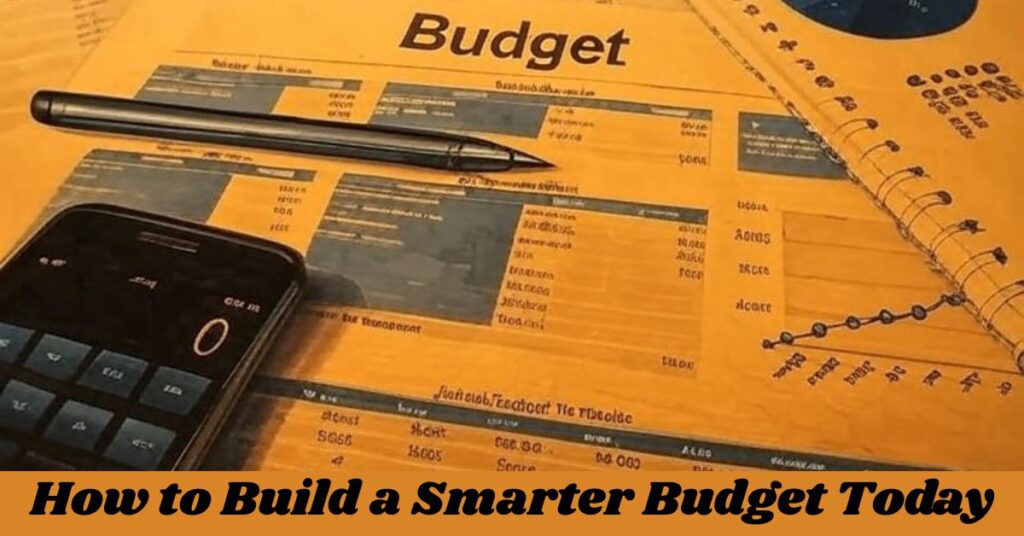Creating a budget is essential for financial success. Many people struggle with proper budget planning. Understanding what to include and exclude in your current budget makes all the difference. Everfi’s financial education platform provides valuable guidance on this topic. Let’s explore what should not be considered when setting up your budget.
Effective money management starts with knowing the basics. Your financial future depends on making smart choices today. Budget mistakes can lead to serious financial problems. Creating a realistic budget is your first step toward financial stability.
What Is a Budget, Really?
A budget is a roadmap for your monetary resources. It helps track where your money comes from and where it goes. Financial planning becomes simpler with a proper budget in place. Everyone needs a budget regardless of income level.
Your budget reflects your current financial reality. It serves as a spending plan for your hard-earned money. Budgets prevent overspending and help achieve financial wellbeing. They provide clarity about your true financial position.
A well-designed budget offers:
- Financial discipline in daily spending decisions
- Clear picture of income versus expenses
- Framework for reaching savings goals
- Early warning system for potential financial problems
- Path to financial freedom and reduced stress
Common Elements You Should Consider in a Budget
Every effective budget includes certain key components. These elements form the foundation of solid budget setting. Including these factors ensures your budget accurately reflects your finances.
Income sources must be clearly identified. This means regular paychecks and predictable income streams. Income tracking helps you understand your earning patterns. Only count money you actually receive, not what you hope to receive.
Your budget should include:
- Fixed expenses like rent, mortgage payments, and insurance
- Variable expenses such as groceries, utilities, and entertainment
- Debt management payments for loans and credit cards
- Emergency fund contributions for unexpected costs
- Savings goals for future plans and purchases
Monthly budgeting requires honest assessment of spending. Expense tracking reveals where your money actually goes. Budget tools can simplify this process significantly. Many free and paid options are available to help.
So… What Should Not Be Considered When Setting a Current Budget?
The answer is clear: future projections of uncertain income should not be included. This is the critical point Everfi emphasizes in their financial education. Including money you don’t yet have leads to problems.

Uncertain income prediction creates false financial security. Your current budget should only include guaranteed money. Hoping for future funds is not proper budget planning. This approach causes many budget failures.
Examples of what to exclude:
- Potential salary increases not yet approved
- Expected bonuses that haven’t been confirmed
- Commissions or tips not yet earned
- Future projections based on optimistic scenarios
- Anticipated gifts or inheritance not received
These represent money you don’t actually have. Financial decision-making should be based on reality, not hope. Everfi stresses this important distinction in their courses.
READ THIS BLOG: Ingredients in Vullkozvelex Safe to Use
Why It’s a Mistake to Include Future or Uncertain Income?
Including uncertain income creates dangerous financial constraints. It encourages spending money you don’t actually have. This leads to debt and financial stress. Your budget loses its effectiveness as a planning tool.
The purpose of a budget is financial clarity. Guaranteed income provides a solid foundation for planning. Unconfirmed money undermines your entire budget structure. This mistake compromises your financial stability.
Consequences of this mistake include:
- Overspending based on money that may never arrive
- Inability to cover essential expenses
- Increased reliance on credit cards and debt
- Damaged credit score from missed payments
- Added stress when expected money doesn’t materialize
Financial literacy means understanding these pitfalls. Everfi’s educational materials highlight these important concepts. Proper budget planning requires a realistic approach.
Examples of What NOT to Include in Your Current Budget
Certain items should never appear in your current budget calculations. These represent income sources that lack certainty. Everfi’s curriculum specifically warns against including these elements.
Anticipated raises should remain excluded until officially approved. Potential freelance work isn’t budget worthy until completed. Tax refunds shouldn’t count until actually received. Future windfalls have no place in your current planning.
Specific examples to exclude:
- Overtime pay not yet earned
- Potential side hustle income not guaranteed
- Money from items you plan to sell
- Expected tax refunds not yet processed
- Anticipated settlement payments not received
These represent hypothetical money, not actual funds. Your spending patterns should align with current resources. Financial planning requires this level of discipline.
How to Handle Irregular or Seasonal Income?
Many people face challenges with inconsistent income streams. This requires special approaches to monthly budgeting. Effective strategies exist for managing variable income. Everfi provides guidance for these situations.

Base your budget on your minimum reliable income. Create separate accounts for managing income fluctuations. Prioritize essential expenses during lean periods. Build a larger emergency fund for income gaps.
Helpful strategies include:
- Calculate average monthly income from the past year
- Create a “holding tank” account for extra funds
- Budget based on your lowest earning month
- Develop tiered spending priorities
- Maintain larger emergency reserves
Proper income tracking becomes even more crucial here. These approaches support financial stability despite income variations. Your current budget can still work effectively with proper planning.
Why Everfi Emphasizes Realistic Budgeting
Everfi’s educational platform stresses financial literacy for good reason. Their courses focus on practical money skills. Realistic budgeting forms the cornerstone of financial education. This approach prepares students for real-world challenges.
Their curriculum emphasizes fundamental budget planning principles. Students learn to differentiate between actual and potential resources. Everfi teaches the importance of financial discipline. These lessons apply throughout life.
Key Everfi teaching points:
- Only budget with money you currently have
- Develop skills for tracking actual income and expenses
- Learn to distinguish between wants and needs
- Understand the importance of emergency savings
- Build sustainable financial decision-making habits
Financial education creates lasting impacts on personal finances. Everfi’s approach prevents common money mistakes. Their realistic approach supports long-term financial wellbeing.
ALSO READ THIS BLOG: Hot Love Messages for Husband – Sweet & Romantic
How to Build a Smarter Budget Today
Creating an effective budget requires specific steps. Start with your actual current income. Track your spending for greater awareness. Use budget tools to simplify the process. Regular budget review keeps you on track.

Begin with categorizing all expenses properly. Distinguish between essential and discretionary spending. Allocate funds for emergency savings first. Adjust your budget as circumstances change. Consistency matters more than perfection.
Follow these steps:
- List all confirmed income sources with exact amounts
- Document all fixed expenses that remain constant
- Estimate variable expenses based on past spending
- Allocate specific amounts for savings and debt reduction
- Track actual spending against your planned budget
Budget tools range from simple spreadsheets to sophisticated apps. Choose what works for your personal style. Regular budget review helps identify needed adjustments. Make budgeting a consistent monthly habit.
Frequently Asked Questions
What percentage of income should go to different budget categories?
The 50/30/20 rule works well – 50% for needs, 30% for wants, and 20% for savings and debt payments. Adjust these percentages based on your personal situation and financial goals.
How often should I review my budget?
Monthly reviews are essential for tracking progress. More frequent checks may be needed when first establishing budget discipline or during significant financial changes.
What if my expenses exceed my income?
Reduce non-essential spending immediately. Look for ways to increase income through side work. Consider temporary lifestyle adjustments until finances stabilize.
Do I need special software for budgeting?
Simple spreadsheets work well for many people. Free apps like Mint or paid options like YNAB offer additional features. Choose tools that match your comfort level with technology.
How do I stick to my budget long-term?
Create realistic categories that include small pleasures. Use automation for savings and bill payments. Review and adjust regularly. Celebrate successes to stay motivated.
Final Thoughts
Effective budget planning requires honest assessment of your current finances. Exclude uncertain future income from your calculations. Focus on what you actually have, not what might come. This approach creates true financial stability.
Your current budget should reflect financial reality, not wishful thinking. Financial wellbeing starts with this fundamental principle. Everfi’s educational approach emphasizes this critical distinction. Successful budgeting means planning with certainty.
Remember these key points:
- Only include guaranteed income in your budget
- Exclude all uncertain future funds from calculations
- Focus on actual monetary resources currently available
- Update your budget when new income actually arrives
- Practice consistent financial discipline in all decisions
A realistic budget becomes your pathway to financial wellbeing. It transforms money management from stress to confidence. By following these principles, you build a solid foundation for your financial future. Budget with clarity today for a more secure tomorrow.

Jerry is a seasoned SEO expert with a passion for content writing, keyword research, and web development. He combines technical expertise with creative strategies to deliver exceptional digital solutions.










